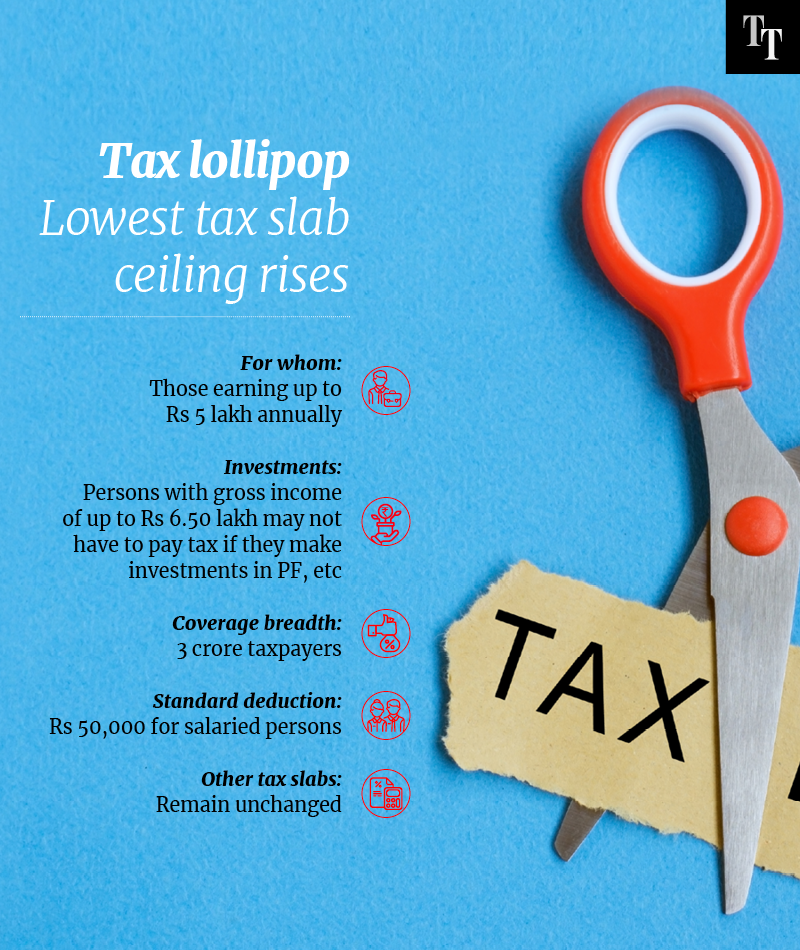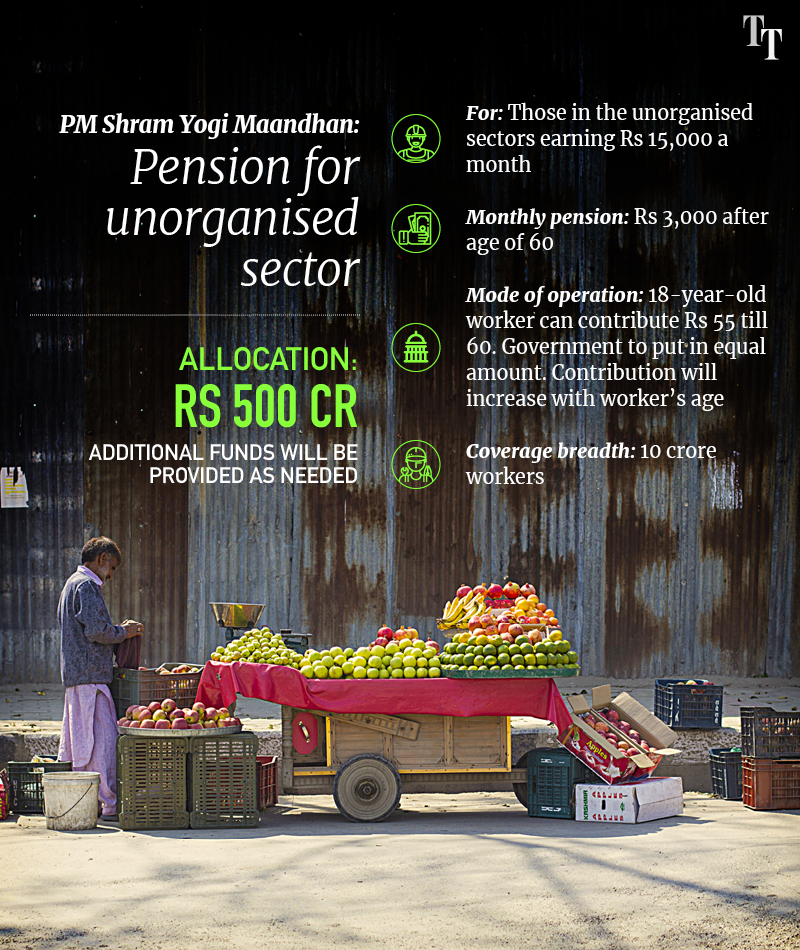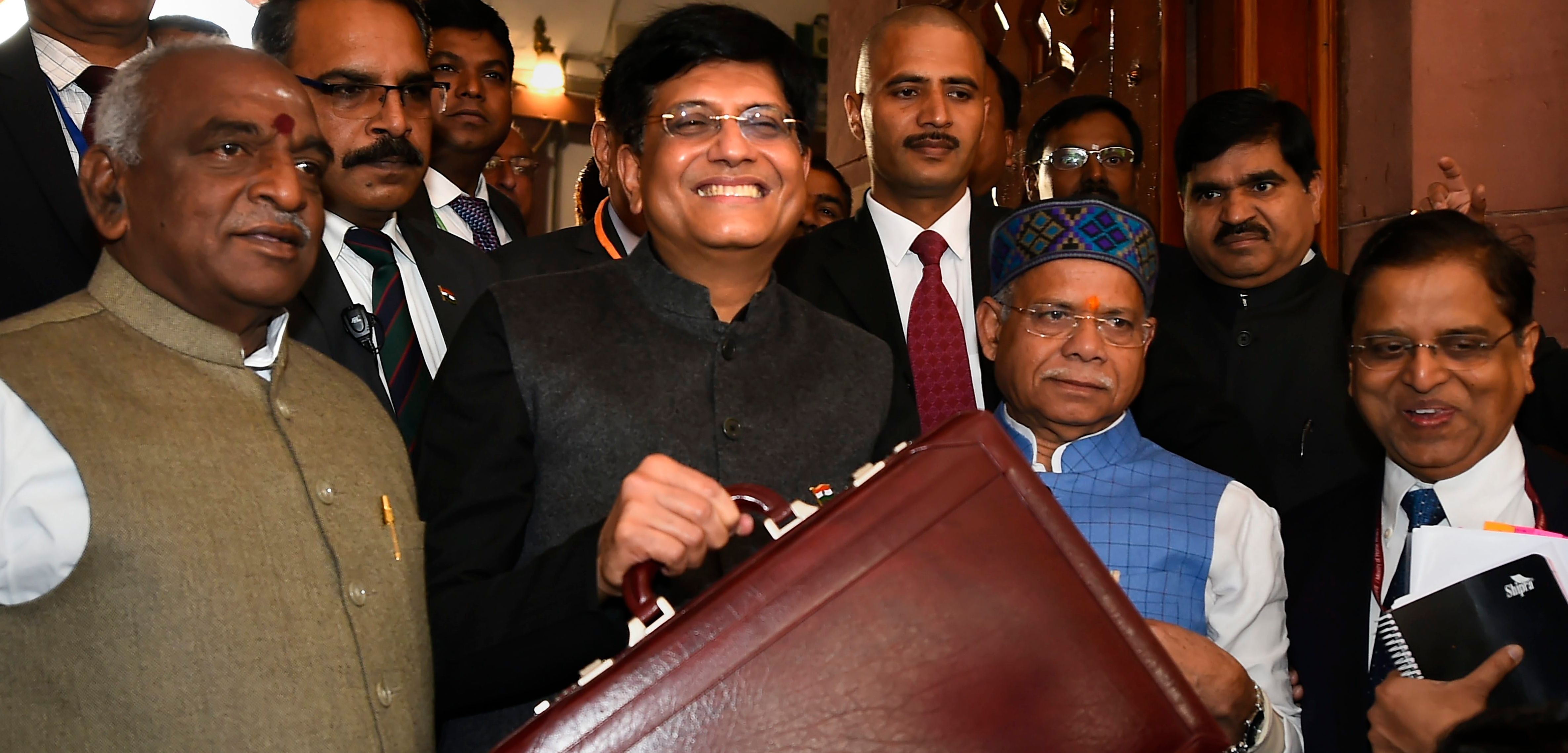Goyal said the defence budget would be hiked to more than Rs 3 lakh crore in 2019-20 while the railways will get Rs 1.6 lakh crore for capital expenditure. The defence budget crossed Rs 3 lakh crore for the first time, but in percentage terms it was one of the smallest hikes in recent years. Capital expenditure for the railways has been hiked massively to Rs 1,57,658 crore.
“We are poised to become a $5-trillion economy in the next five years, we aspire to become a $10-trillion economy in the next eight years,” Goyal said.
Separately, Jaitley said the budget was “unquestionable pro-growth” as well as “fiscally prudent.”
The budget is an interim one as it is being presented in an election year. It will be followed by a full budget after a new government takes office.

Meanwhile, the TDS limit was increased to Rs 40,000 from Rs 10,000 on Post Office savings. The TDS threshold on rental income has been boosted to Rs 2.4 lakh from Rs 1.8 lakh.
The interim budget has assumed critical importance for the ruling BJP after it lost control of three states in elections last month. The government has been put on the back-foot by farmer distress and unemployment.
An India Today-Karvy Insights Mood of the Nation opinion poll published on Thursday suggested the BJP could lose a quarter of its seats in the Lok Sabha with an electoral wipeout in Uttar Pradesh if the Congress joined an Opposition alliance in the key voting battleground. In another blow to the BJP, the Business Standard newspaper reported this week that the government was sitting on a National Sample Survey Office (NSSO) report showing India’s unemployment rate stood at a more than four-decade high of 6.1 per cent in 2017-18. The government later said the NSSO report was not final.
Goyal set a fiscal deficit target of 3.4 per cent of the gross domestic product for the 2019-2020 financial year, slightly overshooting a previous goal of 3.3 per cent. He said the fiscal deficit target miss was due to the extra outlay for farmers. The fiscal deficit target of 3.4 per cent for the next financial year is the same as for the current fiscal year. But next year’s fiscal deficit target was less than the 3.5 per cent of GDP that markets had feared and bonds rallied on the announcement. The government had initially promised to reduce the fiscal deficit to 3.1 per cent of GDP by the end of March 2020 and to 3 per cent by March 2021.
Investors gave a modest thumbs-up to the budget with the Bombay Stock Exchange trading up 0.42 per cent at 36,410.02 points.
Among other populist measures, Goyal announced that the government would initiate social security coverage for an estimated 100 million unorganised sector workers.
Workers earning up to Rs 15,000 who contribute Rs 100 per month would get a monthly pension of Rs 3,000 after the age of 60 in what Goyal said could become the world’s biggest pension programme for the unorganised sector. The scheme, he said, would cost Rs 500 crore.
India’s BJP-led government in a Santa Claus budget unveiled a string of giveaway measures for farmers and taxpayers as it sought to win back voter support with general elections looming a few months away.
Interim finance minister Piyush Goyal, standing in for an ailing Arun Jaitley, declared that the government’s interim spending plans for the financial year starting in April were not “just a budget, this is a vehicle for the country’s development”.
Goyal announced a series of steps to kickstart growth in rural India where farmers have been hard hit by falling crop prices and rising costs. He said the government would sharply hike support for farmers, earmarking Rs 75,000 crore for the next financial year to bolster agriculture incomes.
“Farmer support cost us Rs 20,000 crore this year and will cost Rs 75,000 crore next year,” Goyal told Parliament.
He said farmers with up to 2 hectares of land would get direct annual income support of Rs 6,000 and that the government aimed to double farmers’ incomes by 2022.
“For the welfare of farmers and for doubling their income, the historic decision was taken to increase the MSP (minimum support price) by 1.5 times the production cost for all 22 crops,” Goyal said.
The government is also allocating Rs 60,000 crore for the rural employment scheme MGNREGA (Mahatma Gandhi National Rural Employment Guarantee Act) in 2019-20. In addition, the government aims to also spend some Rs 19,000 crore on rural road building.
In another key vote-catching attempt, Goyal announced that taxpayers earning up to Rs 5 lakh a year would be eligible for a full tax rebate. If they invest an additional Rs 1.50 lakh in provident funds and “prescribed equities” they will not have to pay tax on that money either, he said. For those earning more than Rs 5 lakh, the budget raises the standard deduction for the salaried and pensioners to Rs 50,000 from the current Rs 40,000.












